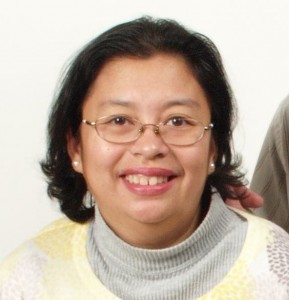by Melissa I. Cardenas-Dow
In anticipation of APALA’s 35th Anniversary & Symposium celebration in June 25, 2015, APALA Web Content Sub-committee is introducing a mini-series of articles focusing on advocacy. We appreciate the significance of advocacy work, which can come in many different forms and can focus on many different aspects of library and community engagement. Many APALA members engage in advocacy as part of their work.
As APALA is an organization invested in librarians and library workers as people, we wanted to shine light on a very human aspect of advocacy work–fatigue. We had asked several APALA members to think about advocacy, activism, and the toll such work often takes. Four APALA members have consented to reflect on their experiences of advocacy, fatigue and renewal. We will be publishing their work through the rest of the 2014-2015 operational year.
In this first essay of the mini-series, I write about advocacy and activism work, and coming to terms with one’s own limitations and need for renewal. ~ Melissa I. Cardenas-Dow, APALA Web Content Sub-committee Chair, 2012-Present

Recently, I’ve come to embrace the fact that I can do intellectual work much better than physical labor. I like to think about things. I find great meaning in the work of connecting abstract concepts together. That type of work excites and energizes me.
What excites me even more is the prospect of doing intellectual work that makes a difference in people’s lives. For me, it’s not enough to think about ideas, how they often end up written or somehow represented as some tangible thing by scholars and academic experts in different fields, and how these knowledge objects must be made accessible to researchers who would need to access them for their own scholarly work.
I am well aware that I am just one among many who take seriously the charge of advocacy and activism within APALA and ALA. Many of us conduct scholarly activism, not just advocacy. Many of us immerse ourselves into scholarly, academic literature and are guided by theoretical perspectives. But, in the end, we advocate–we speak up, we write, we do–for the library worker community and the community of patrons we serve through our libraries.
As Sara Goldrick-Rab says, “It takes time, energy, emotional labor, and a thick skin. It is usually an unpaid gig.” Even within a supportive environment, surrounded by friends, allies and colleagues who think and say positive things about your activist labor, the tolls of such work on a person can be immense.
I make a conscious effort to infuse my professional work, particularly my involvement with professional library associations and groups, with my own personal strengths and social justice advocacy. I select assignments and positions that, I think, will allow me to contribute, help me build some skills that I am interested in improving, and further my personal, professional, and academic interests in equity, diversity, and inclusion in modern American society. Most of the time, finding these in most tasks aren’t very difficult to do. But, they do take a level of attentiveness that can wear on a person. Mostly because the tasks are so plentiful and vast, but my time, heart, and spirit are limited. This circumstance is an easy recipe for burnout.
How does one know one is experiencing advocacy fatigue? Here are the signs that tell me I am in great need of some down time.
The negative, defeatist voices are getting louder. They say things like, “What’s the point?” or “Do you really think you’re making a difference? Lonesome you? The system is bigger than you.” Advocacy work is the work of heart and spirit. Resilient as heart and spirit are, they are also easily depleted. Maintaining a hopeful heart, mind and spirit can become work, in and of itself. When that happens, my internal critics gain ground. I take that as my cue to re-focus, find more ways to get positivity into my daily intake.
Misanthropy starts coloring my outlook and attitude. I generally have a very strong appreciation for absurdist humor. Normally, my penchant for inspiration and joy balances this out, preventing me from tumbling down the cynic’s rabbit hole of mental despair. I believe these lenses–optimism and criticism–are important to hold in tension of each other in order to maintain an advocate’s position. For me, it’s enough to focus on which effort I’d like to get behind, rather than focusing on an outcome that is the result of taking a long-view of activist work. When this balance gets disturbed, however, I start disliking the perspectives, and the people associated with them, that I have cultivated for years.
The desire for an apathetic outlook becomes stronger. When I am so, so tired of advocacy work, I start fantasizing about letting it all go, stopping, and focusing on more immediate concerns, such as my house, my husband, my children, our pets. There are plenty of other, more capable social justice warriors out there, right?
In many ways, feeling burned out, especially these states-of-mind I had described, is a result of a confluence of modern living and of balancing domestic, professional, and other obligations, all at once. I have just pulled out some aspects of how I experience fatigue, in general, and focused on the ones that are most relevant to the advocacy work I do with ALA and APALA.
Living a meaningful life isn’t supposed to be easy. The struggle with fatigue is part of the lifestyle. How do you keep your spirits and heart positive? How do you keep your mind focused on the prize? Let us know in the comments!
Editing assistance provided by Jaena Rae Cabrera.
